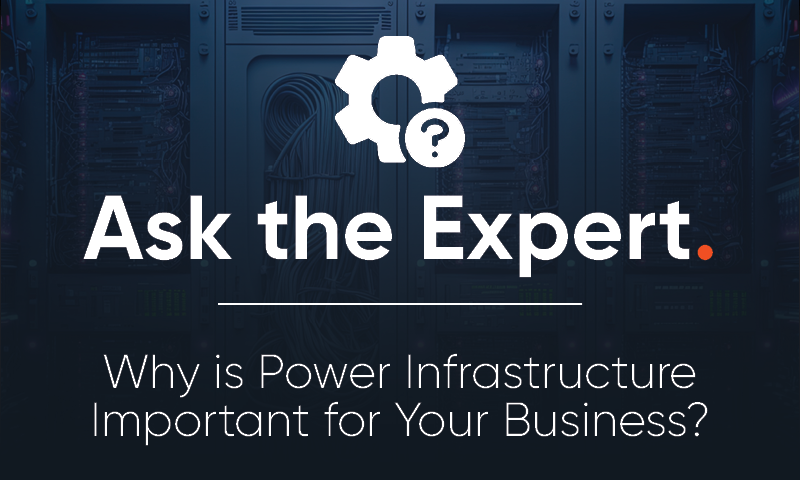Christine Austria and Curvature’s Sales Executive, Juan Gonzalez, discuss power infrastructure and our strategic elite partnership with APC by Schneider Electric
Christine: Hey, welcome to another episode of Curvature’s Ask the Expert. I’m Christine Austria, and today we’re talking about power infrastructure and our strategic APC partnership with Juan Gonzalez, one of Curvature’s Sales Executives. Let’s start off with the basics. Why is power infrastructure important?
Juan: That’s a great question, Christine. So, as you know, uptime equals money, right? So, when systems go down, whether it’s a few minutes or hours, end users and customers are losing money every time that happens.
Christine: So diving deeper, can you talk about UPS and what does it do?
Juan: Of course! So, UPS is an uninterruptible power supply. What that means is it’s a system that’s basically designed to make sure that systems maintain online time as much as possible, but it also serves as a protection device for downstream systems in case of a power surge or blip. The interesting thing about UPS is that they have a usable life of five to seven years. It is true some customers will have units that will last ten to fifteen years, but that tends to be the exception versus the norm. And most of these units usually have battery failures among years three and four.
Christine: Are there any common power infrastructure issues or challenges that customers are facing?
Juan: Yep! So, customer face a lot of issues when it comes to power and probably the biggest one is it’s often a forgotten system. We know when it comes to refresh cycles, you know where there is networking, server, storage, it’s about a five-to-seven-year refresh cycle.
Oftentimes UPS power stuff just gets forgotten until the CEO, CFO, whoever will lose power and then it’s a big issue. By that point, it tends to force customers into a forklift upgrade. The beauty of working with Curvature is we can have customers look at their environment and figure out a more staged approach, moving them from a more reactive to a more proactive solution for their systems.
Christine: So, what do you think is the biggest change in power infrastructure in the last few years?
Juan: Of course! The biggest change we’ve probably seen has been lithium-ion and how much people have been adapting that. APC, in my opinion, has been leading the way with some of those devices and adding a very small form factor and a very potent system. So, as you know, your phone has a lithium-ion battery in it, right? That battery lasts a really long time. You can charge it all you want, and it charges quickly. Same kind of principles apply. You’re looking at a unit that can be up to 5000 VA, it’ll only take one RU (rack unit) footprint and it’ll be way more efficient, so your customers can save money on their energy consumption. It’ll be a less total cost of ownership because the battery supply lasts longer. The batteries have a seven-to-ten-year life cycle. Just a lot of benefits that people can take advantage of just by switching over to the newer technologies.
Christine: Great! Thanks for your insights, Juan. If you have any questions about APC’s power infrastructure for one of our experts, leave a comment below or contact us today and we’ll see you next time on “Ask the Expert”.
For questions about the APC’s Power Infrastructure, reach out to one of our skilled sales engineers today.



